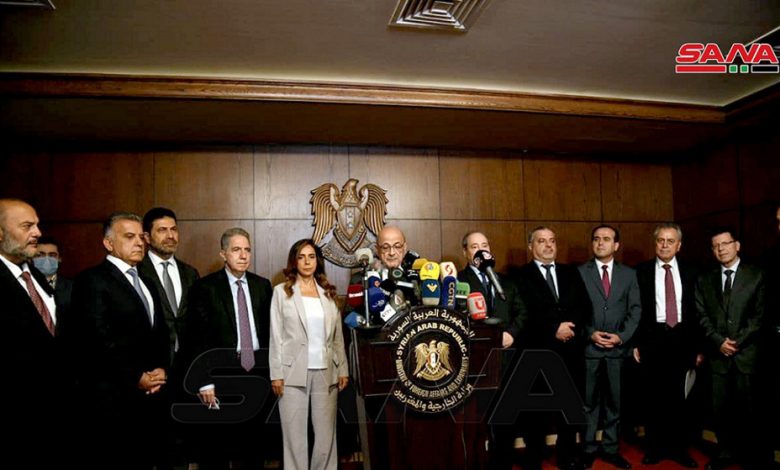Damascus agrees to Beirut’s request to help transport Egypt’s gas, Jordan’s electricity to Lebanon via Syria
Damascus has agreed to the Lebanese government’s request to help transport gas from Egypt and electricity from Jordan via Syrian territory to Lebanon, which is struggling with an energy crisis.

On Saturday, senior Lebanese official Nasri Khoury, who is the secretary general of the Lebanese Syrian Higher Council, announced the news, saying Syria is “ready” to help Lebanon with “transit for Egyptian gas and Jordanian electricity via Syrian territory.”
His comments came after a delegation led by Lebanon’s Interim Deputy Prime Minister Zeina Akar met with Syrian Foreign Minister Faisal al-Meqdad and Oil Minister Bassam Tomeh, Syria’s official news agency SANA reported.
Mekdad received the Lebanese delegation on arrival at the Jdeidet Yabous border crossing. Later in the day, the two sides held a meeting in the capital Damascus.
Khoury added that the two sides also “agreed to set up a joint team to track technical details” of the plan, whose aim is reportedly to revive a 2009 agreement that allowed Lebanon to import gas from Egypt through Syria.
The high-level visit, which is the first since 2011, came after the Lebanese presidency last month said that Washington had agreed to help Lebanon secure electricity and natural gas from Jordan and Egypt through Syria.
Lebanon, a small country of more than six million people, has been mired since late 2019 in a deep economic and financial crisis, exacerbated by a political deadlock.
The currency has lost more than 90 percent of its value during the past two years and more than half of the population has been rendered jobless as businesses have shut down.
The economic and financial crisis is the gravest threat to the country’s stability since the 15-year civil war ended in 1990.
Persisting energy shortages have forced even essential services, including hospitals, to shut down or scale back operations, as prices are skyrocketing and the COVID-19 pandemic rages on.
The central bank is struggling to afford basic imports, including fuel, which has caused shortages and prolonged power cuts that now last as long as 22 hours per day.







